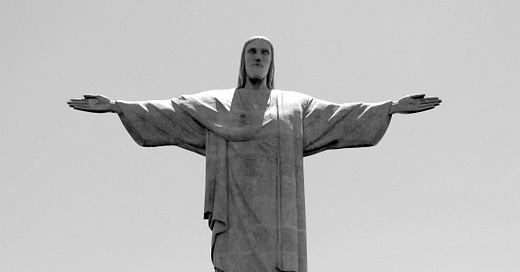Brazil’s peculiar political landscape
Brazil’s political landscape is similar to that of the United States: a somewhat polarised nation with clearly defined left and right parties.
When I ask Brazilians why they voted for a particular party, most of their response is dedicated to slandering the opposing party, rather than offering thoughtful commentary on their own side’s policies.
Interestingly, many readily acknowledge the failures of their chosen leaders, suggesting that there might be others more suitable for power. However, when it comes to the opposing figure, they describe them as the devil in a suit. And how could one ever acquiesce to such monstrosity?
Views on President Lula
Lula defeated Bolsonaro (leader of the right) and assumed power in January 2023. Both men, now in their 70s, represent the political extremes in Brazil — left and right.
When discussing these figures with Brazilians, I rarely hear much genuine support for either man. Yet, if you ask what’s wrong with the one they don’t like, I suggest you clear your schedule — you’re in for a poorly formed diatribe filled with insults and half-truths.
For many on the right, Lula is a corrupt thief. He served 18 months in prison for a corruption charge that was later reversed. Several figures in Lula’s administration have faced scrutiny over the misuse of public funds. Most recently, Minister Juscelino Filho resigned on 8 April 2025 after being accused of stealing public money for personal use.
When I asked my uncle, a Bolsonaro supporter, why he voted for Lula, I wasn’t presented with any positive Bolsonaro policies — just a detailed explanation of how Lula is on the side of criminals in Brazil.
A heavily criticised policy from the Lula administration was the plan to monitor PIX (an instant payment system created by the Brazilian Central Bank) transactions over R$5,000 per month for individuals.
The official justification was to combat tax evasion, money laundering, and undeclared income. However, opposition politicians argued it was a precursor to increased tax collection targeting the working class and small businesses.
Nikolas Ferreira, a 28-year-old politician, released a scathing video criticising the policy, which had received 1.7 million views at the time of writing. The Lula administration later reversed it.
Hate for Bolsonaro
I was speaking with a 28-year-old doctor in Brazil who supported Lula. Excited to understand her reasons, I asked what she liked about the president. To my dismay, her response was a five-minute monologue on how Bolsonaro is the Brazilian Trump — a sentiment echoed by Western media. “He’s a racist, misogynist, homophobe and a disaster for Brazil,” she went on.
My aunt also supports Lula. She told me with a scowl that Bolsonaro is a fascist — and so too is anyone who voted for him. She then went to drink a beer and chat with my Bolsonaro-supporting uncle, a supposed fascist. Perhaps, thankfully, people don’t always mean what they say.
Despite being on trial for an alleged coup, Bolsonaro still has many supporters. They regularly take to the streets wearing Brazil jerseys — a symbol now widely associated with nationalism. My friend told me she avoids wearing the Brazil jersey in public to avoid being mistaken for right-wing.
Economic Perspectives
Bolsonaro supporters often claim that the economy was stronger under his leadership, and for this reason, he deserves re-election.
The parallels with the U.S. are striking, where many Americans said they’d vote for Trump because he ran a “strong economy.” I wonder how that’s working out for them…
As in most countries, Brazilians often blame their leaders for things largely out of their control. For instance, the high price of eggs is frequently blamed on Lula. Many seem unaware that egg prices are up globally, and it’s hardly the president’s fault.
That said, the exchange rate for the Brazilian real continues to worsen. Finance Minister Fernando Haddad recently announced plans to cut taxes for low- and middle-income workers. Investors, however, recoiled at what they saw as poor fiscal discipline — in a country already running a budget deficit of around 8%, with gross debt approaching 90% of GDP.
My family in Brazil is planning a trip to Europe this summer, which is getting more expensive for them by the day.
Hopes for the Future
Brazil’s politics are often humorous, but they can also feel daunting. The divisiveness and hostile attitudes must improve if the country is to reverse course and become a nation of real growth and prosperity.
Looking north to the U.S., it’s hard to feel optimistic about that kind of renaissance — but we can hope.




